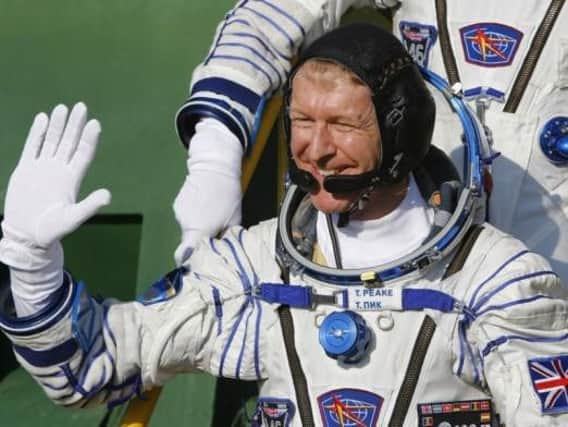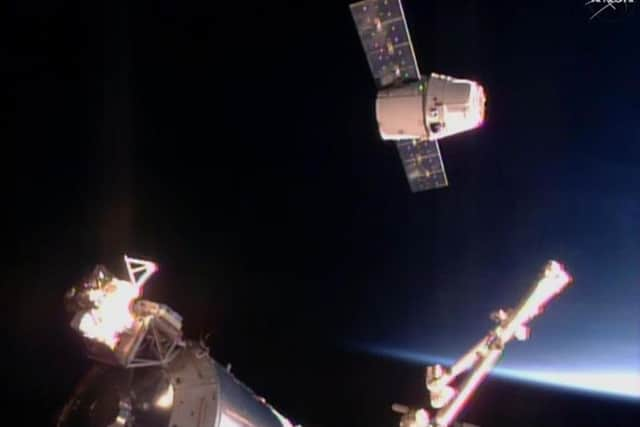Astronaut Tim Peake 'catches a dragon' as Spacex cargo ship arrives


A SpaceX Dragon cargo ship arrived at the International Space Station on Sunday, two days after launching from Cape Canaveral in Florida.
British astronaut Tim Peake used a robot arm to capture the Dragon, orbiting 250 miles above Earth.
Advertisement
Hide AdAdvertisement
Hide AdThe Dragon holds 3,175kg of freight, including the soft-sided compartment built by Bigelow Aerospace. The pioneering pod - packed tightly for launch - should swell to the size of a small bedroom once filled with air next month.


It will be attached to the space station next Saturday, but will not be inflated until the end of May.
The technology could change the way astronauts live in space. Nasa envisions inflatable habitats in a couple of decades on Mars, while Bigelow Aerospace aims to launch a pair of inflatable space stations in just four years for commercial lease.
For now, the Bigelow Expandable Activity Module - Beam for short - will remain mostly off-limits to the six-man station crew. Nasa wants to see how the experimental chamber functions, so the hatch will stay sealed except when astronauts enter a few times a year to collect measurements and replace sensors.
Advertisement
Hide AdAdvertisement
Hide AdThis is SpaceX's first delivery for Nasa in a year. A launch accident last June put shipments on hold.


SpaceX flight controllers at company headquarters in Hawthorne, California, applauded when the hefty station arm plucked Dragon from orbit.
Peake, who made the grab, said: "It looks like we caught a Dragon.
Nasa's mission control replied: "There are smiles all around here. Nice job capturing that Dragon."
Advertisement
Hide AdAdvertisement
Hide AdSpaceX is still reveling in the success of Friday's booster landing at sea.
For the first time, a leftover booster came to a solid vertical touchdown on a floating platform. SpaceX chief executive Elon Musk wants to reuse boosters to save money, a process that he says will open access to space for more people in more places, like Mars. His ambition is to establish a city on Mars.
Nasa also has Mars in its sights and looks to send astronauts there in the 2030s. In order to focus on that objective, the space agency has hired US companies like SpaceX to deliver cargo and, as early as next year, astronauts to the space station. US astronauts currently have to hitch rides on Russian rockets.
In a sign of these new commercial space times, a Dragon capsule is sharing the station for the first time with Orbital ATK's supply ship named Cygnus, already parked there for two weeks.
The Dragon will remain at the station for a month before returning to Earth with science samples.